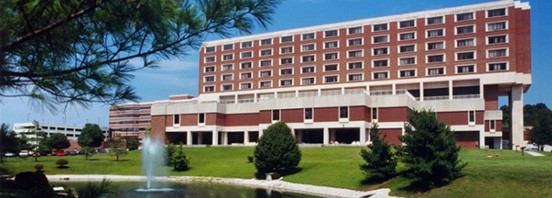St. Luke’s surgery involving twins was the first of its kind
By CHERYL WITTENAUER, AP
ST. LOUIS (June 8, 2005) – Last year, a fertility specialist at St. Luke’s Hospital performed an ovarian transplant from one identical twin to her infertile sister. It was the first attempt in the United States to transplant an ovary from one woman to another.
Monday evening, the formerly infertile sister, Stephanie Yarber, 25, of Muscle Shoals, Ala., gave birth to a 7 pound, 14 ounce girl, whom she named Anna.
The feat marks the first successful birth following a human ovary transplant, according to the New England Journal of Medicine. The journal released a brief report of the case Tuesday on its Web site.
Dr. Sherman J. Silber, director of the Infertility Center of St. Louis, transplanted an ovary from Melanie Morgan to her twin, Yarber, in April 2004.
It was a new experience to watch her niece’s birth, Morgan said from her home in Tuscumbia, Ala.
“It was a whole new world to watch her be born. It was amazing,” said Morgan, who has three daughters.
Yarber went into menopause while just a teenager. No one knows what caused her ovaries to shut down early while her sister remained fertile.
The sisters had tried egg donation three times, but those attempts were unsuccessful. Silber said at the time of the transplant that a new ovary might give Yarber a better chance at conceiving because it would naturally produce hormones and eggs if the operation worked.
Only 80 days after surgery, Yarber had her first menstrual cycle in 10 years. A few months later, an ultrasound revealed a healthy-looking natural pregnancy. And Anna was born to Yarber and her husband Kevin at 38 weeks gestation.
“Stephanie became pregnant so easily,” Silber told the Associated Press on Tuesday. “Her ovary was functioning in four months, and she was pregnant in five months.
“It’s seemed like a wild thing to do, but after 40 years of animal research, it did exactly what we expected.”
Silber said he has since performed the rare surgery on two other sets of identical twins. He said he believes more infertile women will seek out the procedure now that Yarber’s transplant proved successful.
Silber has said previously that the procedure is only appropriate for identical twins because they have the same genetic makeup and there is no danger of rejection of the transplanted ovary.
The Associated Press contributed to this report.
See also:



